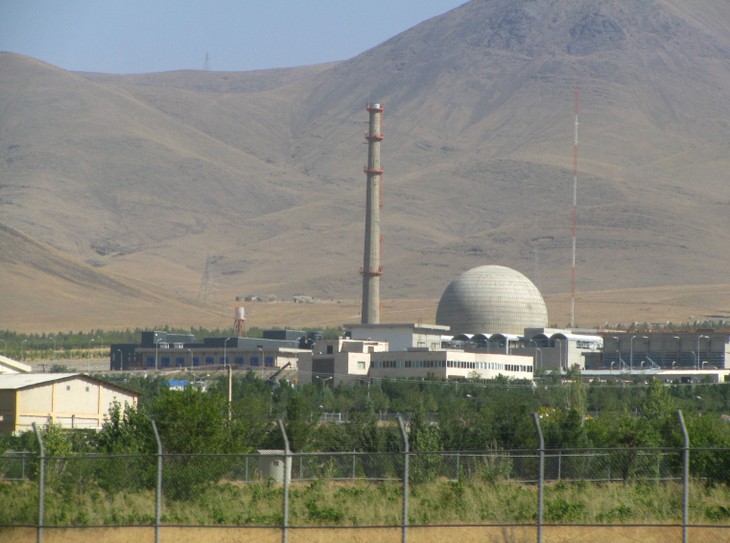(VOVworld) – The International Atomic Energy Agency (IAEA) on Sunday said Iran has abided by the nuclear deal signed with P5+1. The IAEA acknowledged Iran’s goodwill in implementing the deal and restoring stability in the region.
 |
Iran's Arak nuclear reactor
|
Iran and 6 countries – the US, UK, France, Russia, China, and Germany – signed a historic deal on July 14 last year to ease tensions over Iran’s nuclear program. Under the Joint Comprehensive Plan of Action (JCPOA) which took effect on January 16, 2016, the international community has eased economic and financial sanctions on Iran. In turn Iran has had to limit its nuclear activities.
Benefits from the deal
Iran has decreased its stockpile of uranium and heavy water and deactivated its Arak reactor, and, for the first time, has allowed the IAEA to access suspected nuclear facilities. The IAEA says Iran has complied with the deal regarding its uranium stockpile and number of centrifuges and enrichment plants.
Israel, which has strongly rejected the deal, admits the JCPOA has decreased Iran’s nuclear threat. Israel’s Former Defense Minister Moshe Ya’alon has said Israel will not face any imminent nuclear threat. Many Western diplomats and analysts say the deal has successfully reduced Iran’s nuclear capacity and ensured regional peace.
International recognition of Iran’s compliance with the nuclear deal has benefited Iran. It has reintegrated into the global economy. Iran has recovered access to approximately 100 billion USD frozen in foreign banks under previous sanctions. The sum will be used to upgrade petroleum facilities and other infrastructure. Iranian organizations and companies have been allowed to open accounts with foreign banks. Oil production has rebounded to regain Iran’s market share with the signing of oil and gas contracts with China, Russia, South Korea, and Japan. Exports have increased about 20%, and foreign investment reached 5 billion USD in September, 2016.
The nuclear deal has lifted Iran from political isolation and improved its relations with Turkey, Russia, China, Japan, South Korea, India, the EU, and Africa. Iran was accepted to engage in Syria negotiations and anti-terrorism operations in Syria.
Challenges ahead
Despite these initial accomplishments, the nuclear deal faces challenges ahead. Most of the US’s financial sanctions on Iran have not yet been lifted. In December the US Congress voted to extend the Iran Sanctions Act (ISA) for another 10 years. The Act was first approved in 1996 to punish entities investing in Iran’s energy industry and deter Iran from pursuing its nuclear ambition. The Act prompted Iranian President Hassan Rouhani to resume the construction of nuclear-powered ships. Mr. Rouhani asked the Atomic Energy Organization of Iran (AEOI) to reactivate a plan for a nuclear power plant to serve marine transportation. Iran’s Foreign Ministry is preparing a suit against the US with the International Committee which oversees verification of the JCPOA.
Tensions between Iran and the US many rise after President-elect Donald Trump takes office in early 2017, because Trump has said he intends to review the nuclear deal.